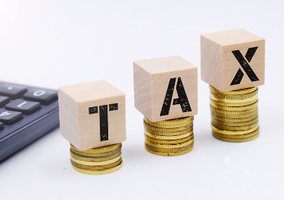Charity bodies have warned that the government’s proposed online sales tax could have a huge impact on donations.
Earlier this year, HM Treasury launched a consultation exploring the arguments for and against an online sales tax. If introduced, the tax would raise revenue, which would be used to reduce business rates for retail spaces.
The government initially considered such tax in a report on business rates and following concerns from businesses that there could be a potential tax imbalance between physical and online retailers.
‘Charities must be exempted’
The Charity Retail Association (CRA) warned in its individual response to the consultation that applying an online sales tax to donations “would be unpopular and impact on funding for charities”.
And in their joint response to the consultation, the Charity Finance Group, CRA, Charity Tax Group (CTG) and National Council for Voluntary Organisations called for charities to be exempt from the tax.
Jonathan Mail, head of public affairs at the CRA, said: “It is vital that an online sales tax avoids taxing charitable donations. The best and simplest way to achieve this is to ensure that all online sales by charities are outside the scope of this new tax.
“Imposing the new tax on the online sale of goods donated to charity would reduce the value of the public’s generous donations and generate considerable extra complexity for charity retailers.
“We are encouraged that the government’s consultation considers the option of exempting all online sales by charities from this new tax and are pressing them to take this course of action to protect funding for good causes.”
In its individual response, the CRA also pointed out a potential issue with donations sold under the Retail Gift Aid Scheme. Should the government decide to apply a threshold or an allowance to an online sales tax, “then these sales would not be covered by the tax as the charity shop is acting as an agent for the individual who is the legal seller,” it said.
It added: “This would create a complex situation in which non-gift aided sales would be subject to the tax whereas gift aided items would not be.”
Increased number of charities could be hit by tax
At the moment, online sales represent a small part of charity retail revenue. However, pandemic-induced lockdowns have forced many charities to increase their online presence, with online sales expected to grow further in the coming years.
Research by the CRA shows that 75% of charity retailers are now selling online compared to 55% pre-pandemic. In the third quarter of 2019, online sales represented 1.6% of sales income for charity selling online, compared to 2.4% during the same period in 2021.
Richard Bray, chair of the CTG, said: “An online sales tax would be intended to rebalance the tax burden faced by the high street. It is essential that this would not in turn create a tax burden for charities which does not exist now.
“We think that there are other ways to ensure a fairer tax burden for high street retailers including charities which will usually face a rates bill of some description.”
Related articles











